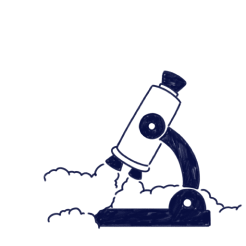When searching for an eQMS (Electronic Quality Management System or Enterprise Quality Management System), it is crucial to prioritize platforms that are purpose-built for meeting the Quality Management Systems (QMS) requirements in the life sciences...
Standard operating procedures (SOPs) describe, well, the standard operating procedures of a company. They provide step-by-step instructions on how to perform the most common tasks at a company. When SOPs are efficient, they decrease miscommunication ...
The FDA is transitioning from Computer System Validation (CSV) to Computer Software Assurance (CSA) for computers and automated data processing systems used as part of medical device production or medical device quality systems. So, what is the diffe...
Quality management systems (QMS) refer to the set of policies, procedures, processes, and resources that a company or organization puts in place to ensure that their products or services consistently meet or exceed customer requirements and expectati...
Top 11 FAQs about GMP Guidelines for Quality Management Systems The GMP guidelines are mandatory in most countries for pharmaceuticals, medical devices, and food industries. Companies that fail to comply with these guidelines can face severe regulato...
Change is essential for growth, no matter which sector your company or organization excels in. However, change can also be a trying period in any company unless you and your team are well prepared for it. The best way to prepare yourself and your tea...
Today, the Quality conversation is no longer about making the digital leap from an outdated paper-based Quality Management System (a traditional QMS) to managing your Quality processes with electronic Quality Management software (an eQMS). That trans...
Implementing a Quality Management System is key to ensuring consistency in all your processes and, ultimately, guaranteeing your product quality and safety. A well-established QMS will allow you to meet both customer and organizational requirements, ...
Healthcare faces complex challenges in a world that is becoming more digital day-to-day. It has become clear that healthcare companies will need to embrace open systems that allow for the sophisticated analysis of multiple data streams and the develo...
Nobody knows the importance of 'Quality Records Management' better than a quality assurance professional! Quality records are invariably scrutinized in every internal or external audit. These documents are treated as living evidence of organizational...
Companies in the life sciences continuously strive to adapt to new developments in our rapidly evolving modern world. Professionals in businesses like pharma, medical devices, and biotech know that in this digital age organizing processes and going p...
Rigorous quality management is fundamental in all regulated sectors, including pharmaceutical, biotech and medical device industries. A good Quality Management System (QMS) is able to define and organize documents and other processes in a quality-adh...
